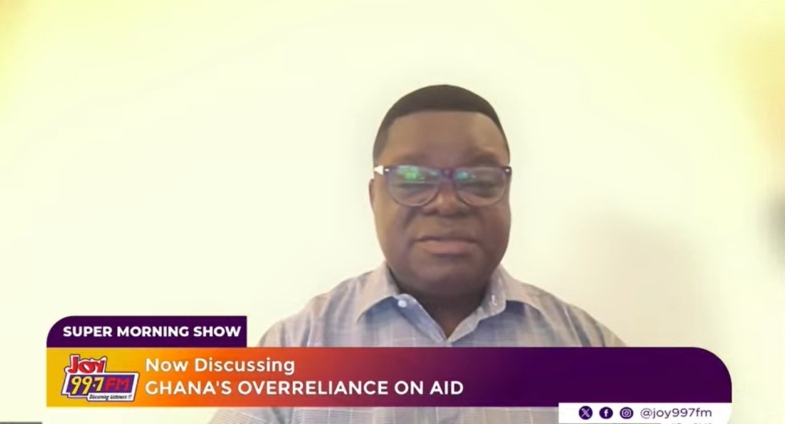As the conversation about building a ‘Ghana Beyond Aid’ resurfaces, the Director of the Institute of Statistical, Social, and Economic Research (ISSER), Professor Peter Quartey, has advised the government to find an innovative method of generating more domestic revenue without imposing higher taxes on Ghanaians.
Speaking on Joy FM’s Super Morning Show, the economist noted that digitising the tax system would improve efficiency in revenue generation and minimise human discretion in tax collection.
While acknowledging that the Ghana Revenue Authority (GRA) and other institutions have digitised some of its tax system, Prof Quartey believes it should be intensified and the tax basket expanded to cover the informal sector.
“We need to raise more revenue domestically, not by imposing higher taxes but by making the existing tax systems more efficient, and we’ve started that with digitization which GRA and the others are doing and I think we need to deepen that.
“And we need to remove the human interface. There is so much discretion when it comes to raising revenue in the country,” he stated.
Mr Quartey’s assertion comes after the Member of the House of Lords in the United Kingdom, Lord Paul Boateng in his keynote speech at a leadership lecture at the UPSA in Accra, said it is time Ghana moves away from reliance on foreign aid.
Lord Boateng indicated that the country will not experience any significant growth since the dependence on external aid hinders progress.
The ISSER Director, who concurs with Lord Boateng, said domestic revenue generation could reduce the country’s dependency on external funding sources.
Another important step to help Ghana achieve financial independence, Prof Quartey believed is for government to reduce its expenditure.
He stressed that even though revenue generation is low, the government often bloated expenditures in its annual budget statements.
Referring to budget statements from 2022 and 2023, he questioned the rationale behind significant expenditure hikes despite revenue challenges.
“We also need to look at our expenditure. I don’t think we are getting value for money for the expenditures, especially for the procurement of goods and services.
“It surprises me that in times of difficulty like this, if you look at the budget statement from 2023, 2022, and even before that we increased expenditure, sometimes, 42%, 30% and you ask yourself, if you are struggling to raise revenue yet your expenditure is still going up, how do you address all the beautiful things you raised in the Ghana Beyond Aid document? We need to go back to the drawing board,” he stated.
Latest Stories
-
Next Joy Business Economic Forum comes off on June 25, 2025
13 minutes -
Scars of Hooliganism: Club officials know their hooligans – Eric Alagidede
25 minutes -
Cybersecurity must be core to financial governance – BoG First Deputy Governor
40 minutes -
Scars of Hooliganism: Violence drives away sponsors for the league – Kwesi Nyantakyi
44 minutes -
Kumasi Airport City project takes off – Asantehene calls for policies to attract local private capital
44 minutes -
Borderless Africa key to SME growth and economic independence – Prof Evans Gyasi
56 minutes -
Scars of Hooliganism: Identifying hooligans in big crowd is challenging – Ghana Police
56 minutes -
Trade Growth Network launched to empower Ghanaian SMEs and promote intra-African trade
1 hour -
‘We could have scored seven’ – Black Queens coach happy with friendly win over Malawi
1 hour -
Rebecca Ekpe shares vision as she targets GJA Vice President position
1 hour -
Ghana stun Uganda in opening game of 2025 Rugby Africa Men’s 7s in Mauritius
1 hour -
Declaring state of emergency over illegal mining premature – Mustapha Gbande
1 hour -
Iran cannot unilaterally shut Strait of Hormuz – NPA boss
1 hour -
Yango Delivery honours 500 top performing couriers at its partner conference
1 hour -
Prioritise regional trade over distant markets – Prof Gyasi urges African leaders
2 hours

